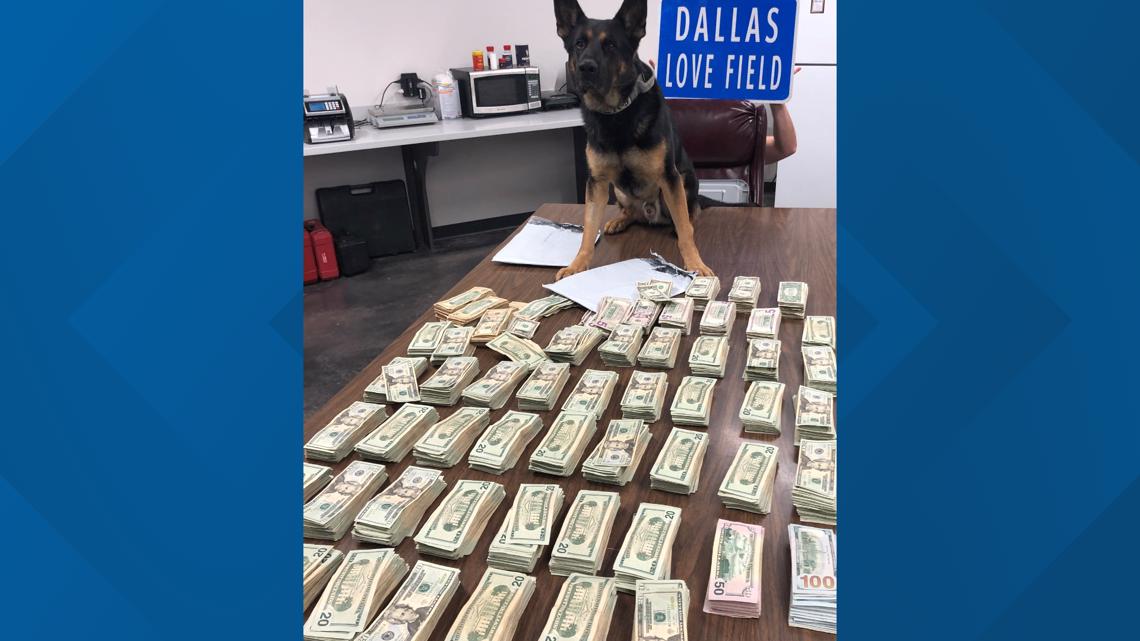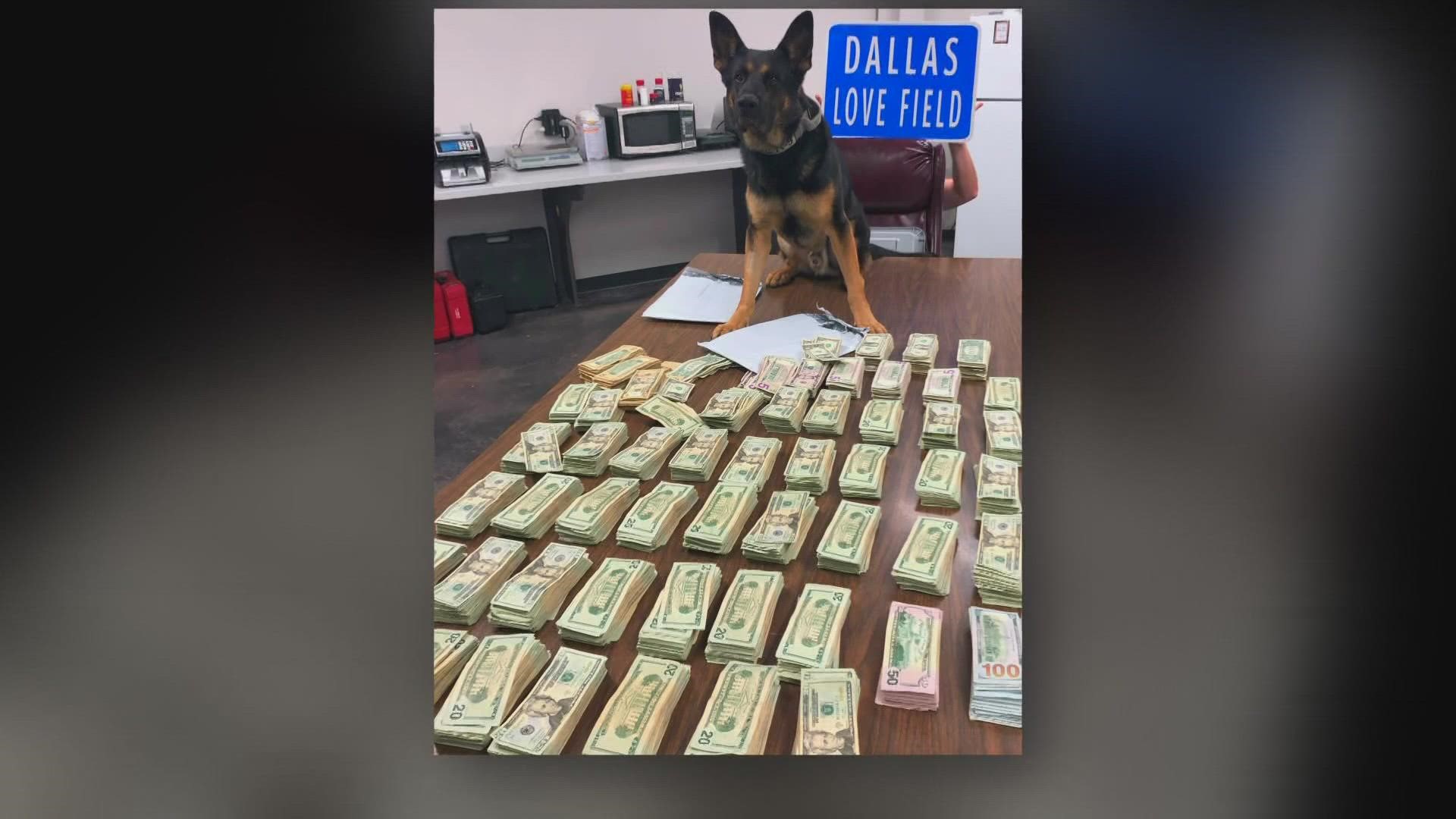DALLAS, Texas — On its Facebook, it's a photo that isn't unusual for the Dallas Police Department to take.
Earlier this week, the department released a picture of one of its K-9 officers, "Ballentine" posing alongside $106,829 in cash seized from a checked bag at Dallas Love Field Airport.
"We need to get him some treats! K-9 Officer Ballentine does it again! On 12/2/21, the Lovefield Interdiction Squad seized over $100,000 with the help of Ballentine. Good job, Ballentine!" the caption read.


But it didn't take long for the picture to become a discussion piece for civil asset forfeiture on Reddit, Twitter, and amongst Republican lawmakers in the state.
According to investigators, Ballentine alerted fellow officers to a checked-in bag at Dallas Love Field on Dec. 2. The suitcase contained only blankets and two large bubble envelopes with the money.
The suitcase owner, a 25-year-old woman from Chicago who had a layover at Love Field, was not arrested or charged.
However, a spokesperson for the department said that detectives with the Special Investigations Division did a follow-up investigation before seizing the money and said that federal officers would be following up as well.
The spokesperson, however, did not detail what all was done during the investigation.
The bottom line? That kind of cash in a suitcase is incredibly fishy, but there's no law saying you can't travel with that much money.
Texas' civil asset forfeiture laws allowed officers to seize the money, and those laws are pretty hospitable to law enforcement agencies.
Those laws are in place to strike criminals hard when they're caught red-handed doing illegal activity -- to hinder their operations.
For instance, if officers bust a suspected drug dealer in his car with drugs and loads of cash, they can seize all three to ensure that the dealer can't further any more illegal activity if they get out of jail.
But police can also seize property, including cash, if they think it will eventually be used in a crime. That happens even if a crime isn't being committed, like in the case of the $106,829 seized at Love Field.
The owner of any property seized by police or a governmental agency has to hire an attorney and contest the seizure in civil court to get the property back.
Even then, the burden is on the property owner to prove that their items had nothing to do with criminal activity. If unsuccessful, cities and agencies can use seized cash in their budgets.
They can also use money from selling seized property to put towards budgets.
And an analysis by the Washington Post found that $60 billion had been seized by law enforcement between 2001 and 2014 from folks who were never charged with anything.
Civil asset forfeiture reform has bipartisan support as well.
As Peter Simek from D Magazine put so eloquently in his article about this subject Wednesday, "For Democrats, it is a criminal justice issue. For Republicans, these laws represent an abuse of personal liberty."
Texas Rep. Matt Schaefer, a Republican from Tyler, authored a bill during the previous legislative session to make seizing property a more complex challenge for police.
"The state has the lowest possible burden to show why they should seize property," Schaefer said. "It's by a preponderance of the evidence. So, if the evidence is just a little bit above the other side, then the state will win every time."
Schaefer's bill would have raised that burden of proof to "clear and convincing," which means the evidence is highly and substantially more likely to be true than untrue.
"That's the highest burden in civil court -- if they're going to take someone's property away, then they have to show their case with clear and convincing evidence," Schaefer said. The bill, however, never made it to the governor's desk.
But Rep. Dade Phelan, the Speaker of the Texas House, wants Schaefer to file his bill or another one like it again during the next session.
He went to Twitter, telling Schaefer to "saddle up," regarding reform.
Schaefer admitted that he thinks that the majority of law enforcement agencies aren't abusing civil asset forfeiture laws, but said police should be more than willing to answer to a more significant burden of proof as to why they're taking someone's property.
"It will not change how we do business one bit," Schaefer said. "Here in Tyler and Smith County, they are not seizing assets unless they believe they have a strong case that the property was involved in some criminal activity."

